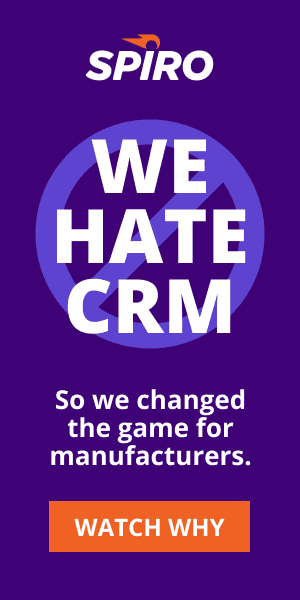7 Tips to Close a Prospect Who’s Expressed Interest
So you’ve prospected your tail off, connected with a prospect who’s receptive to your pitch, and moved the deal down the pipeline.
What now?
In a perfect world, the prospect will be clamoring to sign the paperwork, and all you’ll have to do is sit back and collect your commission check.
In reality, however, this is where salespeople earn their living: carefully balancing the prospect’s needs with the available product, and moving the deal closer and closer to a signature.
While there isn’t a one-size-fits all prescription to get the deal over the finish line, there are some things you can do to ensure you have the best chance of getting to a closed deal.
Here are seven tips to help you sign a prospect who’s expressed interest:
1. Do your research
Information is an effective weapon, and nothing will show a prospect how committed you are like coming to the table having done your research. In this day and age, there’s little you can’t find out online, so make sure to scour the web to get a complete picture of who you’re selling to. At a minimum, it will show that you’re a professional.
2. Make sure to explain the process
This is a step that a lot of salespeople skip, assuming that talking about what’s going to happen isn’t as important as actually doing it. This, however, is a mistake, and it’s important to explain how the process will unfold to the buyer. Once you get buy-in, this will eliminate the disconnect between expectations and reality, and will make it a team effort, rather than an adversarial one.
3. Don’t get defensive
Prospects have their own opinions, that’s just how it is. If you get defensive when they say something you disagree with, you won’t last long. Train yourself to be comfortable when people push back and disagree with you, and most importantly, learn how to maintain a positive attitude throughout. Whenever you get defensive, you’re building a barrier between yourself and the prospect. Make sure to tear down that wall.
4. Bring the conversation back to the benefits
Conversations are fluid, and sometimes they go off in directions that you don’t expect. It’s your job, however, to bring the conversation back to the benefits your product will offer the prospect. Talking about price? Tie the price to the benefits. Talking about the competition? Differentiate, then tie it back to your unique benefits. Discussing the weather? Great, but get the conversation back to business, and remind the prospect of the benefits. Of course, don’t be obnoxious about it, but remember why they’re interested — and remind them.
5. Stay confident
Even if you’re not sure whether the deal is going to close; even if you need the deal to get paid this month; even if you lost your last four deals in a row, you must remain confident throughout the process. To do otherwise is to risk losing the deal, because a prospect will sense a lack of confidence, and will likely read it as a lack of confidence in your offering. Whatever you have to do to convince yourself to be a true believer, do it.
6. Ask for the business
If you’ve gone through the sales process, it’s time to ask for the business. Don’t get off the phone or off the video call without asking for the business. If you’re not comfortable coming out and asking for the prospect’s business, then either learn how to get comfortable with it or start looking for a new job as soon as possible. At some point, you have to put it on the line, and unless the prospect comes out on their own and says they’re going to sign, you need to ask for their business, period.
7. Avoid talking past the close
Some salespeople have a tendency to keep talking after the prospect has agreed to move forward. Of course, you shouldn’t just hang up the phone, and you should answer any questions they have and outline next steps, but you should not delve further into your sales pitch, or go into lengthy descriptions of the product or service you sell. The reason for this is simple: at this point, you can only do more harm than good. The prospect has agreed to buy, you’ve done your job, so don’t go talking yourself out of it.

